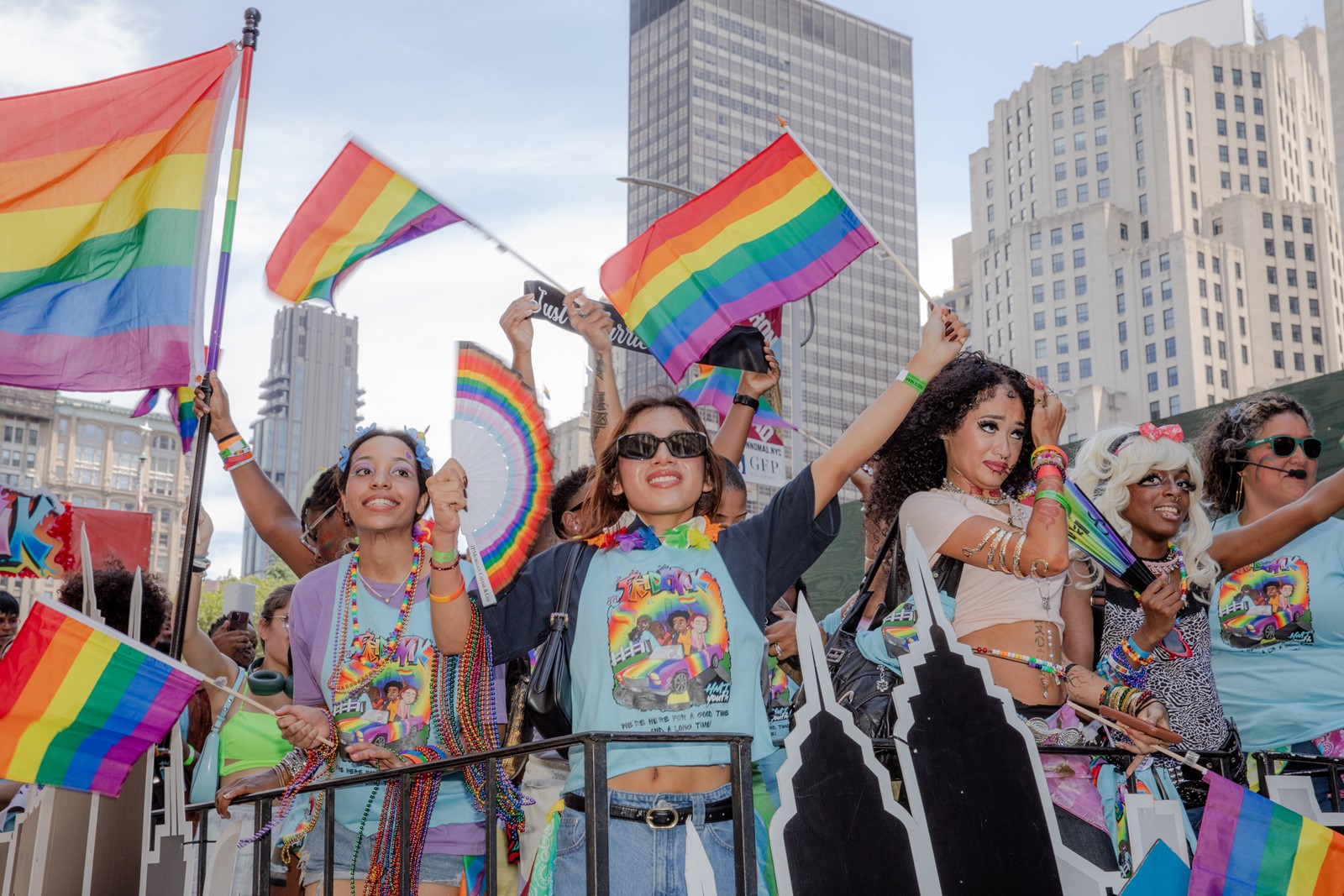
NEW YORK — Millions of people gathered on Sunday for the New York City Pride March, packing the streets of Manhattan for a celebration amid the most hostile political environment for LGBTQ+ Americans in decades.
The march commemorates the 1969 Stonewall riots, which are widely seen as giving rise to the modern LGBTQ+ rights movement. That effort, over many years, has increased public support for LGBTQ+ people, but the movement has begun to falter badly in the face of opposition from the Supreme Court, the Trump administration and even some Democrats.
Pride celebrations have always been equal parts party and protest, and those who planned to march Sunday said that filling the streets with rainbow flags and colorful floats was now more important than ever as the rights of LGBTQ+ people come under increasing attack.
Stacy Lentz, an owner of the Stonewall Inn, where the 1969 riots took place, and the CEO of an affiliated nonprofit, said she thought LGBTQ+ people and their supporters needed “to get back to the roots of Pride and what happened at Stonewall because our rights are under attack in a way we haven’t been in decades.”
“I have had young folks ask me, ‘What do you think it was like back then? How do you think people felt to be fighting for their rights?’” she said. “I tell them we’ve never been closer to that time then we are right now. We all need to pick up the torch.”
The New York march is the largest of its kind in the United States, with 75,000 participants and roughly 2 million spectators, according to organizers. It is also broadcast on network television, a testament to how much public support for LGBTQ+ people has grown over a generation.
But backlash against LGBTQ+ rights has increased since same-sex marriage became legal nationwide almost exactly 10 years ago. The fallout has mainly, though not solely, affected transgender people.
“The gay and lesbian movement succeeded beyond the expectations of the founders,” said David K. Johnson, a professor of history at the University of South Florida. “But now trans people are the most vulnerable members of the LGBTQ community, which is why I think sometimes using the term LGBTQ actually obscures more than it explains.”
Over the past three years, Americans have become more supportive of laws that limit transgender rights, according to the Pew Research Center. A majority of adults now support laws that ban gender-affirming care for minors and require trans people to play on sports teams based on their sex at birth.
A poll released by Gallup in May showed that 54% of Americans — up from 51% four years ago — said that it was morally wrong to change one’s gender. The share of Americans who said that homosexuality was morally wrong had risen much further, from 25% in 2022 to 33% in 2025.


 PREVIOUS ARTICLE
PREVIOUS ARTICLE
